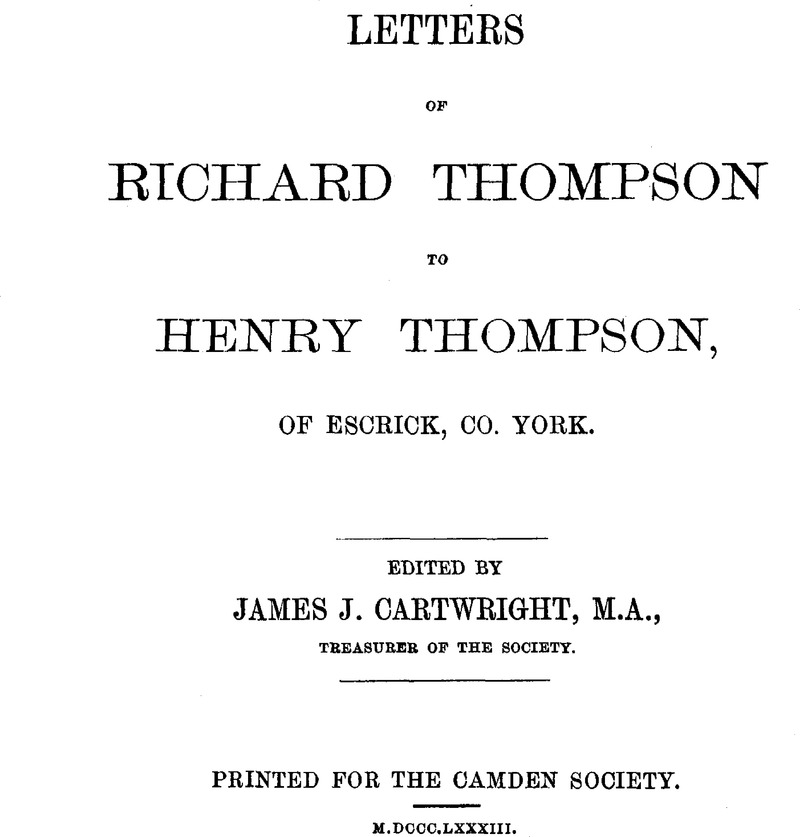No CrossRef data available.
Article contents
Letters of Richard Thompson to Henry Thompson, of Escrick, Co. York
Published online by Cambridge University Press: 24 December 2009
Abstract

- Type
- Other
- Information
- Camden New Series , Volume 31: The Camden Miscellany, Volume the Eighth. , December 1883 , pp. 1 - 9
- Copyright
- Copyright © Royal Historical Society 1883
References
page 2 note a Richard Nelthorpe, a barrister, was implicated in the Rye House Plot, and afterwards in the Monmouth Rebellion.
page 2 note b William Williams, recorder of Chester and member for that city, was elected Speaker in October 1680; and filled the same office during the short parliament which sat at Oxford in March 1681. He conducted the prosecution of the Seven Bishops. Sir Trevor Williams sat many years for Monmouthshire.
page 2 note c Thomas Flatman, born about 1633, was educated at Winchester and New College, Oxford. His poems were printed in 1682. He died in 1688.
page 3 note a Thomas Rymer, afterwards the well-known historiographer royal, and editor of the Fœdffra, was probably born at Yafforth, in the North Riding; he was educated at Northallerton and Sidney College, Cambridge. The most complete account of him is to he found in the preface to the first volume of the late Sir T. Duffus Hardy's Syllabus of the Fœdera, published in 1869.
page 4 note a Sic.
page 4 note b Ken, Bishop of Bath and Wells, and Turner, Bishop of Ely, were both deprived of their bishoprics for declining the oath of allegiance.
page 5 note a William Bentinck, afterwards Earl and Duke of Portland.
page 5 note b Sir Bobert Sawyer, Knt. was member for Cambridge University. He had been Attorney-General, and at this time was attacked by the Whigs for his part in the trial and condemnation of Sir Thomas Armstrong. He died in 1692.
page 5 note c Richard Blackmore, poet and physician, knighted by King William. He was a favourite butt of the satirists of that age, otherwise his writings would hare been forgotten.
page 6 note a J.Billers, LL.B. of St. John's College, was elected public order of Cambridge in 1681.
page 7 note a M.P. for Cirencester, and vice-chamberlain to Queen Mary at this time, the “quick-witted, restless, and malignant politician,” celebrated by Macaulay.
page 8 note a Richard Savage, who succeeded his father in the Earldom of Rivers in 1694; father of the poet Savage.
page 8 note b On 11 Dec. 1693, Viscount Irwin was returned for Scarborough in the place of Francis Thompson, deceased.




